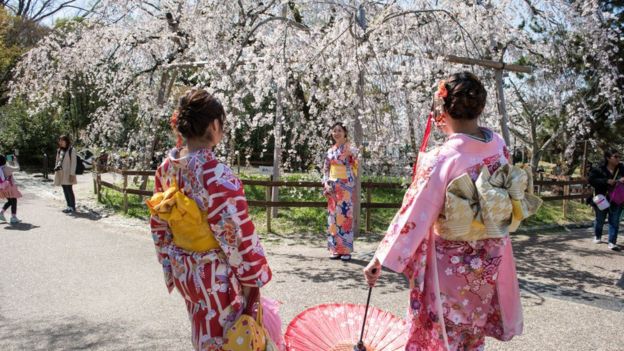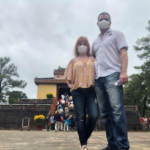The people of Japan and millions of tourists should now be enjoying the start of the cherry blossom viewing, or hanami, season.
It’s an extremely important time of year for the country, both economically and culturally.
Traditionally friends and family get together, and for a new generation it’s a perfect Instagram opportunity.
But this year the coronavirus pandemic means events have been cancelled and foreign visitors are staying away.
Katsuhiro Miyamoto from Kansai University highlighted the financial importance of hanami: “Japan’s cherry blossom season has very big economic effects every year”.
He estimated that almost 8.5m tourists visited the country during the cherry blossom season between March and May last year, bringing in some 650 billion yen ($6bn; £5.2bn).

Seijiro Takeshita from the University of Shizuoka underscored why the gatherings, at which people eat and drink and make merry, are so important to the Japanese economy.
“We use an expression ‘the wallet becomes loose’, meaning people tend to a have a very high propensity to spend.”
“We have so much emotional attachment to this flower and the viewing season… It has a lot of cultural factors, a lot of historical factors behind it,” Professor Takeshita added as he explained the wider significance of the cherry blossom season.
This year though hanami events are being cancelled across the country as authorities attempt to slow the spread of the coronavirus.
Last week the governor of Tokyo Yuriko Koike urged people to not hold their traditional parties. At the same time Ms Koike made reference to the cultural importance of hanami as she said that it was like “taking hugs away from Italians.”



